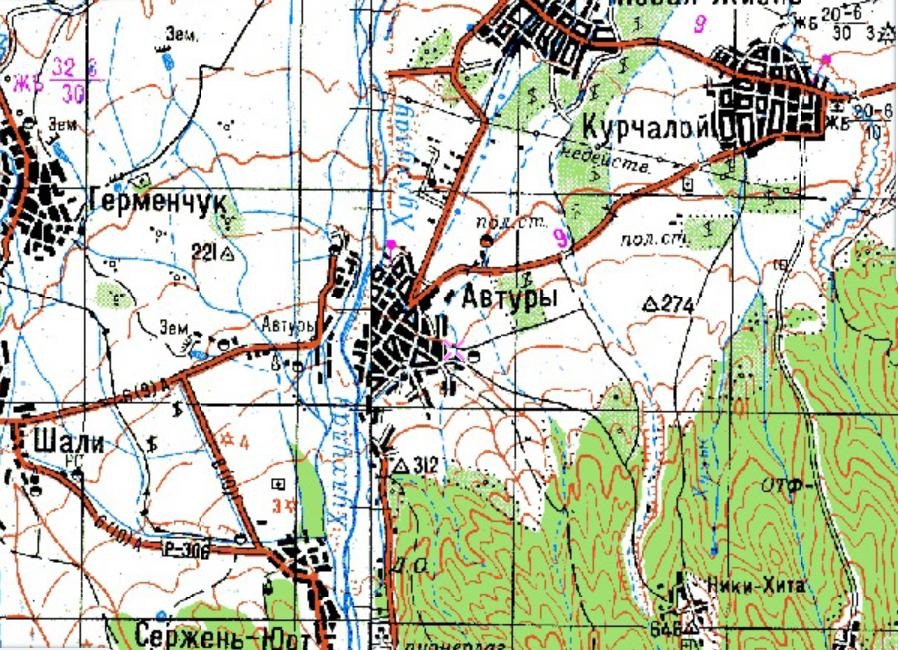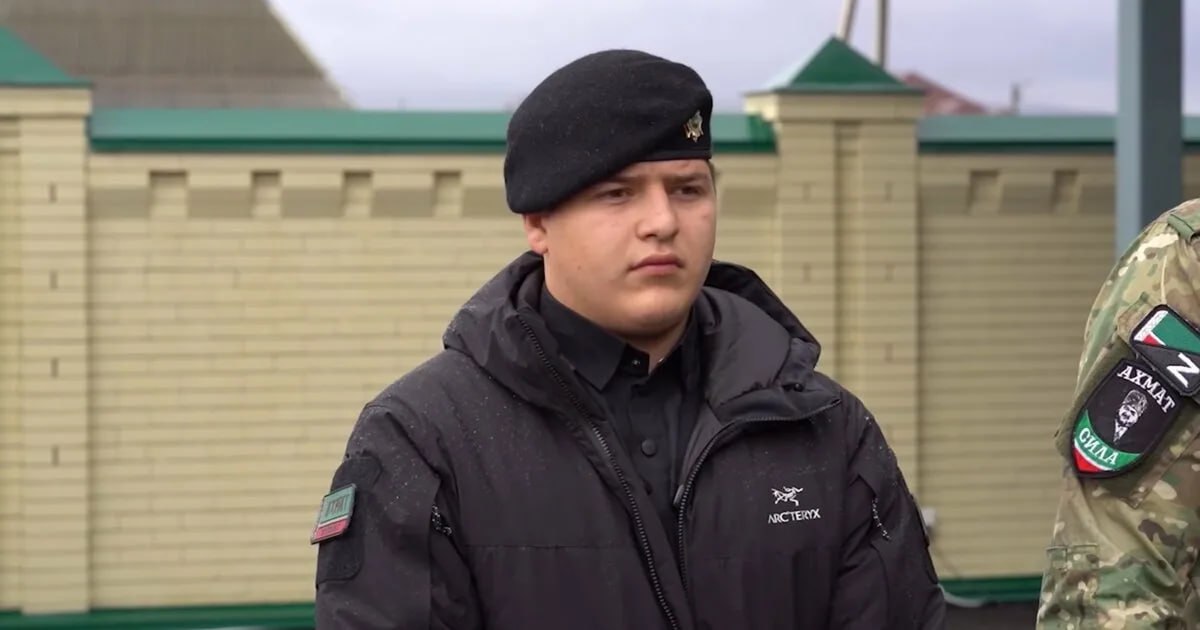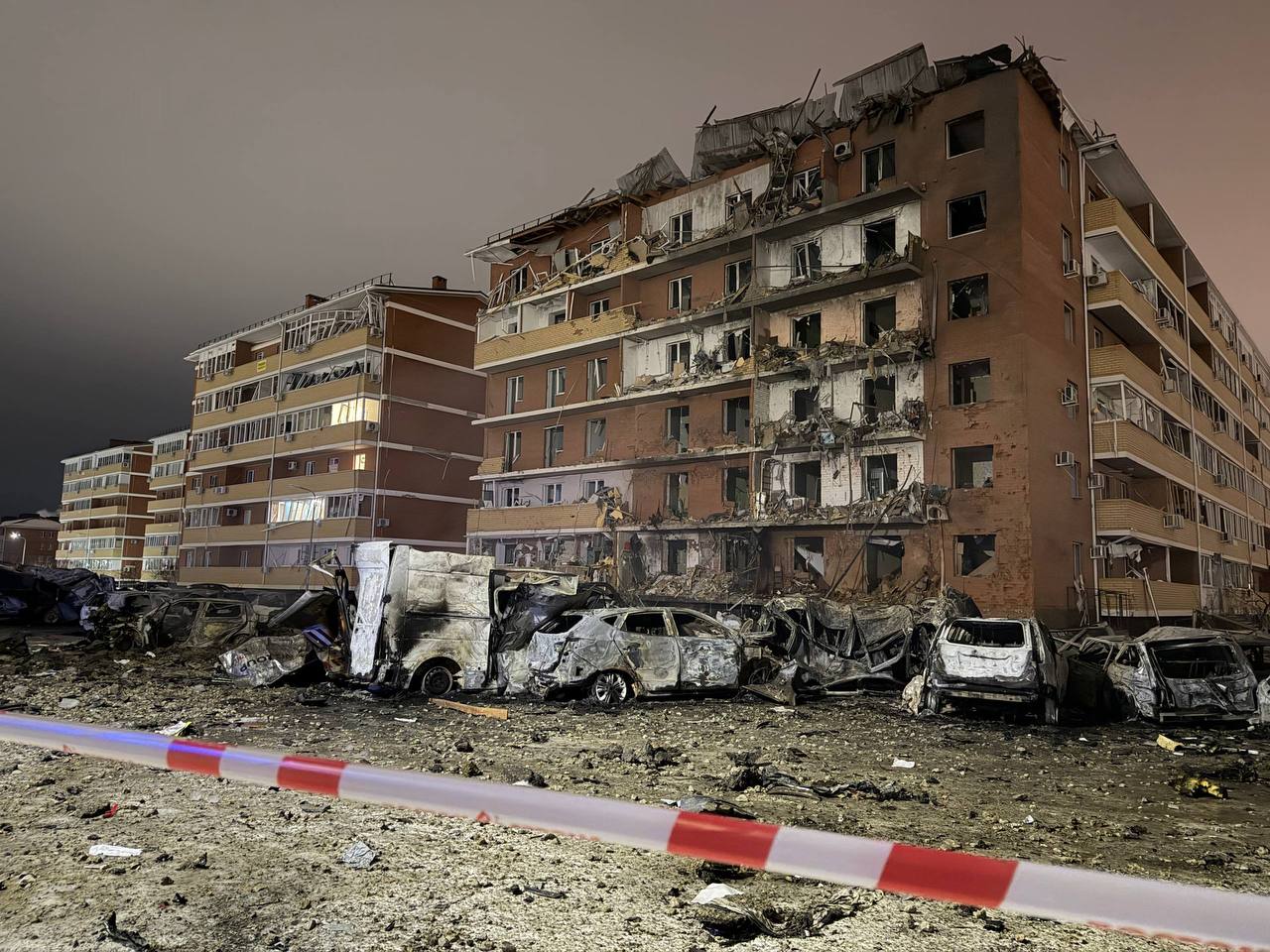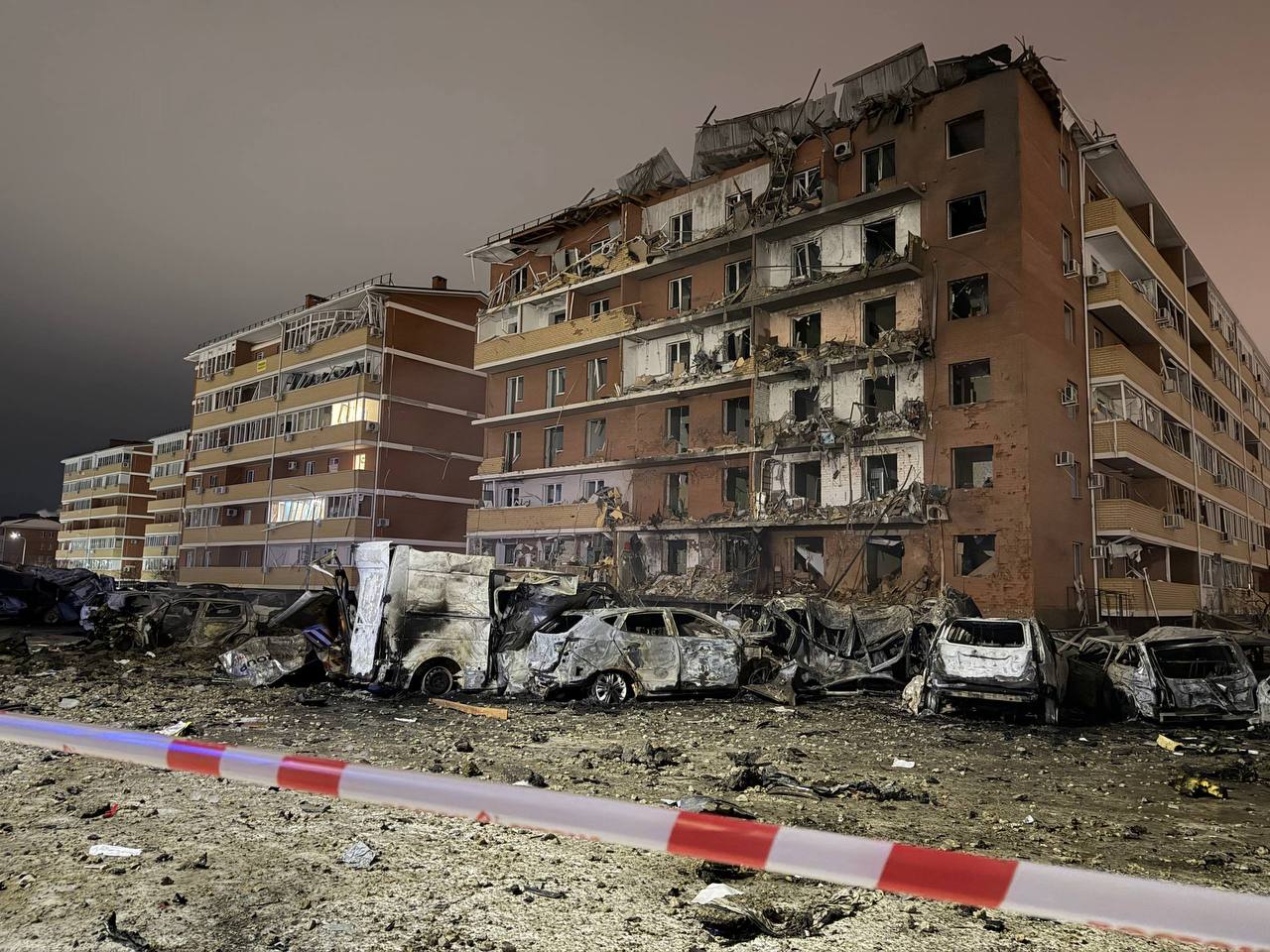The health of Adam Kadyrov, the son of Chechen leader Adam Kadyrov, who was injured in a traffic accident in Grozny, is improving, according to the Agency, citing sources close to the Russian presidential administration and the Chechen authorities.

November 11, 2001
***
At 19.15 in Grozny on Beslanovskaya Street, a grenade was thrown into the courtyard of the house in which Galina Gonchar and her son Boris lived. Three or four people came in immediately after the explosion. They illuminated the windows with a flashlight and then opened fire on the house with machine guns. None of the residents were injured. Moreover, Galina Gonchar managed to spot one of the attackers. According to her, he had previously attempted to kill her and her son. On November 9, a grenade was already thrown into her yard. The subsequent explosion did not cause much damage to the household. Then the hostess managed to notice a tall man in a leather jacket and knitted cap behind the fence.
On November 12, Galina Gonchar reported the incident to both departments of internal affairs - permanent and temporary - of the Oktyabrsky district. The arriving police officers examined the crime scene, drew up an inspection report and, according to their own words, opened a criminal case. But the victim had no confidence that even after law enforcement agencies dealt with what happened for real, the life and health of herself and her son would be safe. She decided to leave Grozny.
November 12, 2001
***
Ali Makhmaevich Sultaev, born in 1977, left home and did not return. He lived at the address: Mayrtup village, Nuradilov St., 82. According to his sister Khava Sultayeva, his brother did not participate in hostilities. Relatives searched for him, but could not find out anything. As of early 2008, he was considered missing. Memorial Human Rights Center does not have any more recent information.
Special features of Ali Sultaev: height 180 cm, weight 85 kg, dark hair, brown eyes. The bridge of his nose was broken and his upper front teeth had yellow metal crowns. He left the house wearing blue sports trousers with three longitudinal stripes, a black bologna jacket and white sneakers.
***
At 12.10 in Grozny, the building of the Chechen State University was cordoned off by masked Russian soldiers. Among them were Chechen GRU officers (probably from the unit headed by Said-Magomed Kakiev). They arrived in several armored personnel carriers.
Having burst into the classrooms, the military began to take students out into the corridor, stand them along the wall, check their documents and search them. Their actions were accompanied by obscene language and insults that offended both personal dignity and the national and religious feelings of students and teachers. When asked by the latter to explain the reason for what was happening, they also responded with abuse. For example, they insulted the dean of the Faculty of Law, Dovtaev, who was trying to prevent the illegal detention of his son. And the dean of the Faculty of Finance and Economics, M. Azdarbiev, was even beaten by them. When searching the premises and examining personal belongings, the military behaved unceremoniously and rudely. One of the students had her bag torn. Many girls were in a state close to hysterics.
The “cleansing” of the university lasted several hours. After its completion, the following students were taken away by the military:
1. Viskhan Zuhairaev, born in 1982, student of the preparatory department of the Faculty of History;
2. Akhmed Takhaev, university student;
3. Aslan Askhabov, born in 1985, student at an oil technical school;
4. Timur Tudaev, born in 1982, first-year student at the Faculty of History;
5. Khamzat Khasukhanov, born in 1982, student at the preparatory department of the Faculty of History;
6. Khusein Shitaev, born in 1981, student at the preparatory department of the Faculty of Finance and Economics.
All six were taken away in armored personnel carriers in an unknown direction. Their location could not be established the next day, November 13. And then the university students, having informed the teachers, headed to the former motor depot, where the government of Chechnya, the prosecutor's office, the military commandant's office and the VOVD of the Leninsky district of the capital of the republic are located. They blocked the entrance to the territory of the government complex with a human chain and demanded the release of the detainees, including Shamil Isakov, who was detained two days earlier. Up to 500 students took part in the action.
The military, among whom were Chechens, tried to break the chain. They did this by threatening and insulting those gathered. But not only. One of the soldiers hit the girl. A classmate stood up for her and a fight broke out. Soon, indiscriminate fire from machine guns was opened, as a result of which an employee of the prosecutor's office was wounded.
In the midst of all these events, the vice-rector of the university, Lema Turpalov, arrived at the site of the student protest. He, along with two students, were allowed into the prosecutor's office building, where a meeting took place with the Chechen prosecutor Vsevolod Chernov and the commander of the Chechen riot police Musa Gazimagomadov. During the meeting, the prosecutor agreed that the detentions in the university building were illegal. He promised that he would personally go to Khankala, where, according to his information, the abducted students were located. The riot police commander also agreed to go there with him, saying that he would not return without the young people.
However, the protesters did not disperse. They said they would leave the area in front of the government complex only when they were satisfied that their demands had been met.
At about 3 p.m., one of the detainees, Timur Tudayev, approached the place of the action along with his father. He said that he spent more than 24 hours with other students at the Russian military base in Khankala. They were kept in an armored personnel carrier with their hands tied. Then he and another student were taken to the Grozny-Argun highway and released there.
Towards evening, Deputy Prosecutor of the Republic Alexander Nikitin came out to the protesting students and said that they had allegedly opened a criminal case regarding the illegal detention of students (Article 127 of the Criminal Code of the Russian Federation) and the perpetrators would be punished. The results of the investigation, he further said, will be reported to the university. Having warned that if any of the detainees were not released, the protest would continue the next day, the students went home.
On the morning of November 14, it became known that students Akhmed Takhaev and Shamil Isakov did not return home. Having gathered again, the students, holding banners “Hands off the university”, “Stop the lawlessness”, “Bring back the detainees”, marched from the university to the prosecutor’s office building. Immediately after this, the severely beaten Akhmed Takhaev was released.
Regarding Shamil Isakov, prosecutors said that a criminal case had been opened against him. They informed him of his location - the temporary detention center at the Leninsky VOVD - and promised to allow his parents and a lawyer to see him.
During the “cleansing” of the university, hundreds of people were beaten and humiliated, the educational process was disrupted for three days, and all this, as it turned out in the end, made no sense - the detained students were not guilty of anything. The military personnel who took part in the “cleansing” grossly violated the order of the Prosecutor General of the Russian Federation V. Ustinov (dated July 27, 2001), which emphasized that representatives of the civil authorities and employees of the permanent - Chechen - police department must be present at operations of this kind. . The military commandant of the Leninsky district of Grozny, in a conversation with an employee of the Human Rights Center “Memorial” on November 13, claimed that during the events described, employees of the prosecutor’s office were at the university. But he could not name their names.
Since the resumption of work, the Chechen State University has remained in the area of increased attention of Russian security forces. “Cleansing operations” took place here; its territory was subjected to shelling, including one that ended in the death of students. Thus, on November 5, 2000, the university and the surrounding area were first attacked with grenade launchers and small arms, and then attacked with mortars. The students crawled out of the fire zone. More serious consequences resulted from the shelling of the university buildings and the pedagogical institute located next to it on December 20, 2000. Five students, including three girls, were killed. On April 18, 2001, the military attempted to kidnap four students - three young men and a girl. With the joint efforts of the teaching staff and the students who ran out of the building, they managed to fight them off. Two days later - on the evening of April 20, 2001 - near the main building of ChSU, the military ambushed a car in which there were three students, and then set it on fire. All three were burned. On May 18, 2001, seven students were captured during a “clean-up” of the university. Two of them were saved, five were taken away in an unknown direction. Two days in a row after this, powerful protests by students of city universities took place in Grozny. At least four of those abducted were released. On June 1, 2001, on the way to class, not far from the checkpoint at the intersection of Pervomaiskaya and Mayakovskogo streets, four students were shot at and wounded. One of them had both legs blown off and died soon after. And on June 29, 2001, the military deliberately fired grenade launchers at the university building itself, where at that time there were a large number of students and teachers in the classrooms.
Violence against students at ChSU, as well as other educational institutions in Grozny, was not limited to the examples given. Students were captured and killed on the way to classes, at their place of permanent residence, in various areas of the city and the republic. And therefore, what is happening cannot be considered simply a coincidence of events of different nature. The violence against Chechen students can to some extent be explained by the events in early September 2000. Officers of the FSB of the Russian Federation unexpectedly surrounded the administrative building of the university, searched it and took away in nine bags the documents of students who were admitted on preferential terms after the first (1994-1996) .) war. These were the children of those people whose parents either fought or participated in anti-Russian and anti-war socio-political movements and organizations. In other words, the special services received “compromising evidence” not on those who resisted the Russian authorities, but on those who, in their opinion, could follow the same path. And although most of the “beneficiaries” did not risk returning to their studies, “cleansing operations” and unexpected raids at the university after the seizure of documents became a frequent occurrence. The murder of ChSU HR department inspector Lyubov Netsvetova by unknown persons also indirectly points to the connection between these events. According to one version, it was she who handed over the lists of students on benefits to the employees of the FSB of the Russian Federation.
***
Children playing near the dried ponds of the Rodina state farm discovered a burial. The local police officer reported the discovery to his superiors, after which excavations were organized. The pit from which the remains of three people were extracted - two men and one woman - turned out to be mined. The corpses themselves were in a severe stage of decomposition. The people found in the pit died a violent death. The hands of all three victims were tied with wire from behind. One skull had a hole from a gunshot wound, possibly a control shot. State farm "Rodina" is located near the airport. "Sheikh Mansura" ("Northern"). Almost from the first months of the second war, the command of units of the Internal Troops of the Ministry of Internal Affairs of the Russian Federation was located on its territory.
***
At 2 o'clock in the morning in the village of Avtury, an armored personnel carrier drove into the yard of Maymunt Ibragimova, born in 1935, living on Tsentralnaya Street, knocking out the iron gate. Employees of an unidentified Russian security agency immediately rushed into the opened passage. In total - up to 30 people. Everyone was in camouflage uniforms, many wearing masks. At this time, in addition to the hostess, there were in the house: her daughter Mata Sadullaeva; husband of daughter Vakha-Khadzhi Katalov; her son is disabled Musa Sadullaev with his wife Toita and five young children. The eldest of them was only 12 years old.
The armed people who burst into the living quarters were drunk, behaved recklessly, and swore. They kicked the children out into the yard, threatening Maymunt Ibragimova and her daughter-in-law that they would “dismember” them in front of everyone if they did not give up the money and gold. The robbers beat Mata Sadullayeva, tied her up, and forced a gag into her mouth. Then they tore off her gold chain and tore out the earrings from her ears. Musa Sadullaev and Vakha-Khadzhi Katalov were beaten. The security forces overturned furniture in the house and threw things around the rooms. They stole gold jewelry and money, two video and one audio recorder, jackets, jeans, women's clothing, etc. Having loaded the loot onto an armored personnel carrier and putting Musa Sadullayev and Vakha-Khadzhi Katalov there, the attackers left. Where is unknown. That same night Vakha-Khadzhi Katalov was released and returned home. Two or three days later, Musa Sadullayev was also released.
This is not the first time that Maymunt Ibragimova’s home has been attacked. In the spring of 2000, the military staged a similar pogrom there. True, then there were no kidnappings.
On December 8, 2001, the Chairman of the Council of the Human Rights Center “Memorial” Oleg Orlov sent a written statement (out. No. 246.01) to the prosecutor of the republic Vsevolod Chernov with a request to understand what happened in Avtury. An official request was sent to the same address on January 20, 2002 (HRC “Memorial” No. 32/02). Five days before, on January 15, in accordance with Part 2 of Art. 126 of the Criminal Code of the Russian Federation (kidnapping), the prosecutor's office opened criminal case No. 59038, but on March 15, 2002 it was suspended on the basis of paragraph 3 of Article 195 of the Criminal Procedure Code of the RSFSR (due to the impossibility of identifying the persons involved in the crime).
***
At 3 o'clock in the morning in the village of Tangi-Chu, up to 50 employees of Russian security forces, some wearing masks, tried to enter house No. 40 (according to other sources, No. 9) on Tsentralnaya Street. They arrived in three armored personnel carriers (in some sources - one armored personnel carrier) and two Ural vehicles.
The security forces were unable to open the door on their own and began knocking. The owner of the house, 64-year-old Kuzhal Shamsudinova, responded to the knock. The woman asked who was there. After she was told that it was from the Urus-Martan VOVD, she opened the door. Having entered the house, the security forces conducted a search without presenting the necessary documents. They didn't find anything forbidden.
At this time, in addition to Kuzhal Shamsudinova, her husband Isa, two daughters and eldest son Suliman were in the house. The second son, Bislan (in other sources - Beslan), born in 1974, slept in a separate room with his wife and two children. The soldiers lifted him out of bed, let him get dressed and took him out of the house. Passing by his mother, he managed to say in Chechen that a relative working in law enforcement agencies should be informed about his arrest. Bislan Shamsudinov was taken away without any explanation. The relatives were not told anything about the place where he would be kept. Law enforcement officers harshly stopped the mother's attempt to follow them: one of them threatened to shoot her if she left the gate.
In the morning, the relatives of the abducted person contacted the Urus-Martan VOVD. There they were informed that he was in the district military commandant's office. Both of these structures were located in the same building - a former boarding school. The regional branch of the Federal Security Service of the Russian Federation for the Chechen Republic was also located there on the third floor. But the commandant’s office stated that Bislan Shamsudinov was not detained by them. This message contradicted what the military man who stood at the gate at the entrance to the boarding school said. According to him, Shamsudinov was indeed placed in the commandant’s office.
Relatives are inclined to believe this military man's information. As Kuzhal Shamsudinova said, when they were standing near the building, waiting for any news about the abducted person, someone shouted, calling her husband by name: “Isa, Isa!” They looked up and saw someone waving at them from a half-barred window on the third floor. Clutched in her hand was a knitted cap, similar to her son’s cap. However, the person’s face could not be seen due to the great distance.
The search for Bislan Shamsudinov led nowhere. Appeals to various Russian government structures did not clarify his fate. The search continued until at the beginning of May 2002, on the northern outskirts of Urus-Martan, in the area of the old mill, a law enforcement officer of the Russian Federation (according to some sources, an FSB officer) discovered the remains of a man with signs of violent death. Apparently it was blown up. Mustafa and Suliman Shamsudinov, based on the remains of clothing and some signs, identified their brother in the murdered man and buried him in a cemetery in the village of Tangi-Chu. They did not show the mutilated corpse to the mother, saying that it was supposedly another person. Kuzhal Shamsudinova considered her son missing for a long time.
Documents regarding the death of Bislan Shamsudinov are dated May 6, 2002, the day the corpse was discovered in the vicinity of the regional center. The body was torn into pieces. The medical death certificate No. 284 dated July 8, 2002 indicates the causes of death: severe mine explosion injury, multiple gunshot and shrapnel wounds, 3rd and 4th degree burns to the torso and limbs.
The abduction was witnessed by relatives, and it was carried out by employees of Russian security forces stationed in Urus-Martan. Their ethnicity was Russian, they also spoke Russian.
According to relatives, earlier (approximately in May 2001) Bislan Shamsudinov was detained by the Russian military at the central market of Grozny. He was then sentenced to two years as a member of “illegal armed groups.” He served his sentence in Chernokozovo. Six months after the trial, he was released early.
After an appeal from relatives, on December 10, 2001, the prosecutor's office opened criminal case No. 25156 under Art. 126 (kidnapping) of the Criminal Code of the Russian Federation. Soon, according to paragraph 3 of Article 195 of the Code of Criminal Procedure of the RSFSR (due to the impossibility of identifying the persons involved in the crime), it was suspended. There was no appeal to the court regarding the inaction of the prosecutor's office, and no complaint was filed with the ECHR. At the end of 2006, the investigation of this crime did not lead to any results. More precisely, there was no investigation at all. While searching for Bislan Shamsudinov, his sister also visited Chernokozovo. One of the employees of the prosecutor's office of the Naursky district told her that her brother should be demanded from the deputy commander of the riot police of the Chechen Republic, Buvadi Dakhaev. Why exactly for him is still unclear. Memorial Human Rights Center does not have any more recent information.
***
In the afternoon, a local resident named Kazbek was killed in Avtury. He was mentally disabled and had already been in the hands of the Russian military. Then he was released after bullying and severe beatings. He had reasons to be afraid of people with weapons, and not even Chechens. Therefore, when he saw Russian soldiers driving into the village street, he ran in the opposite direction from them. Shots rang out after them. Kazbek fell and died from his wounds some time later.
From the book “People Live Here”, Usam Baysaev, Dmitry Grushkin, 2006.



